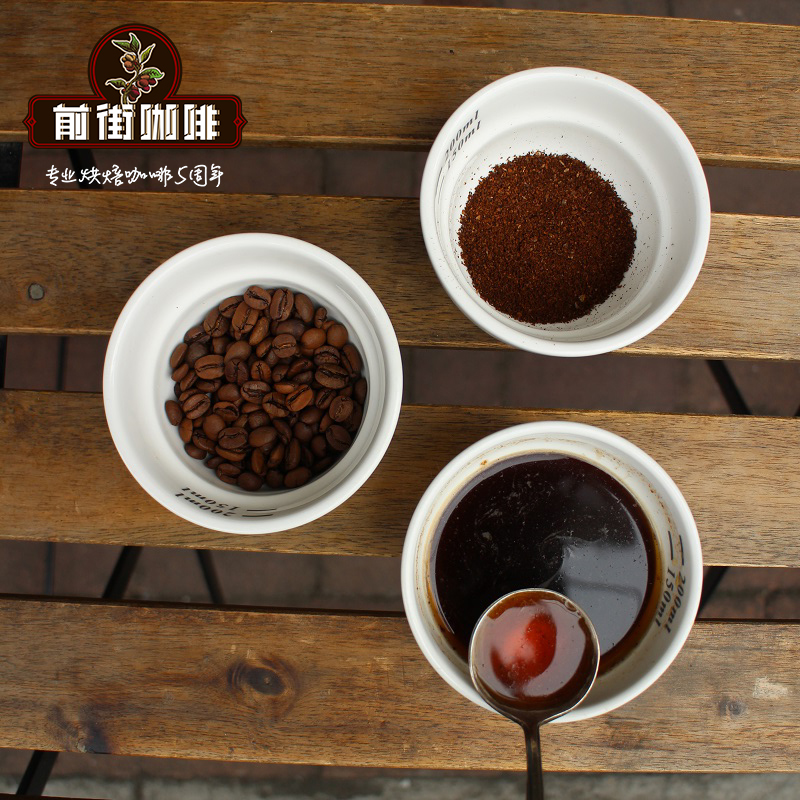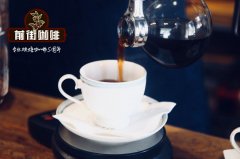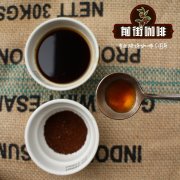Starbucks Sumatran Coffee pattern meaning what is the characteristic story of Sumatran coffee beans

Professional coffee knowledge exchange more coffee bean information please follow the coffee workshop (Wechat official account cafe_style)
Sumatran semi-washing, that is, wet stripping, because of the treatment process, often produce many different flavors, such as wood, soil, mildew, spice, etc., these flavors may not be very pleasing to most people, but knowing this, why does Sumatra still use this treatment?
Sumatra wet stripping makes Mantenin unique but difficult to evolve.
First of all, because of the climate of Sumatra and the high humidity here, it is necessary to adopt the method of short drying time. In fact, the bigger reason is that most of the raw beans in this producing area are purchased from different small farmers. That is to say, the small farmers in the middle turn coffee cherries into shelled raw beans and sell them to buyers on the first floor. The purchasers will then resell these raw beans to distributors, who will turn them into dried raw coffee beans and then sell them to traders. Why does such a trading process lead to the birth of wet stripping? Mainly because the small farmers want to cash out soon.
Sumatra wet stripping makes Mantenin unique but difficult to evolve.
(the processing and market entry process of traditional Sumatran coffee beans)
At present, there is no independent processing plant in Sumatra to buy coffee cherries directly, so small farmers have no choice but to use their own buckets as traditional washing fermentation tanks, and then immediately throw the coffee beans into the fruit shell machine (but because the raw beans are still soft, they will be squeezed by the machine, so they will show a sheepfoot shape). Remove the pulp and shell of the beans, and the moisture is about 30anth40%, or higher. This is very different from traditional washing or tanning, because it is usually not treated until the moisture level is only about 13%. If you wait for the real drying before giving it to the acquirer, the time to realize cash will be lengthened (because the sun usually takes 27 Murray 30 days). Therefore, it is only after going to the traders that the sun or machine drying is carried out to reduce the moisture of raw beans to 13%. After that, the beans are screened and hand-selected, and the beans are sold in different grades according to the defect rate and the size of the beans, and the beans are kept clean for 90 days. so that the beans can have a good "rest and recuperation", so that the moisture of the beans can be consistent (this is called the activity balance of water).
The whole process is handled by different people at different stages, and the condition and quality are very difficult to control. In addition, the washing and fermentation of small farmers, in fact, there is no real fermentation, but only to wash and buoyancy to remove too bad beans, and does not have the role of traditional washing fermentation tank, so the flavor is more impetuous, the strain is difficult to control, and the taste is not so clean. In terms of sun exposure, unlike the traditional sun-drying method, the pulp is used as the basis for fermentation, which can produce fruity coffee beans. Therefore, Sumatra wet stripping method, in the global competition of high-quality beans, the flavor can only be "special" to compete, the long-term development is not very optimistic.
Important Notice :
前街咖啡 FrontStreet Coffee has moved to new addredd:
FrontStreet Coffee Address: 315,Donghua East Road,GuangZhou
Tel:020 38364473
- Prev

What are Sumatra coffee brands? The story of chain coffee brand Sumatra coffee beans
Professional coffee knowledge exchange More coffee bean information Please pay attention to coffee workshop (Weixin Official Accounts cafe_style) Over the past few decades, Indonesia has supplied coffee roasters around the world with precious coffee beans with low yields. Coffee brewed with local beans has a unique flavor and is loved by connoisseurs. Indonesians used to prefer tea, but things are changing. Along with the younger ones
- Next

Species characteristics of coffee beans from Sumatra, Indonesia, planting areas and treatment methods of Mantenin coffee beans
Professional Coffee knowledge Exchange more information on coffee beans Please follow the Coffee Workshop (official Wechat account cafe_style) Coffee trees were introduced to Indonesia by the Dutch in the mid-17th century (some official sources believe that earlier). The first batch of coffee from Java was sold to Amsterdam in 1712. Indonesia exported 300000 tons last year, making it the fourth largest coffee producer in the world.
Related
- Does Rose Summer choose Blue, Green or Red? Detailed explanation of Rose Summer Coffee plots and Classification in Panamanian Jade Manor
- What is the difference between the origin, producing area, processing plant, cooperative and manor of coffee beans?
- How fine does the espresso powder fit? how to grind the espresso?
- Sca coffee roasting degree color card coffee roasting degree 8 roasting color values what do you mean?
- The practice of lattes: how to make lattes at home
- Introduction to Indonesian Fine Coffee beans-- Java Coffee producing area of Indonesian Arabica Coffee
- How much will the flavor of light and medium roasted rose summer be expressed? What baking level is rose summer suitable for?
- Introduction to the characteristics of washing, sun-drying or wet-planing coffee commonly used in Mantenin, Indonesia
- Price characteristics of Arabica Coffee Bean Starbucks introduction to Manning Coffee Bean Taste producing area Variety Manor
- What is the authentic Yega flavor? What are the flavor characteristics of the really excellent Yejasuffi coffee beans?

